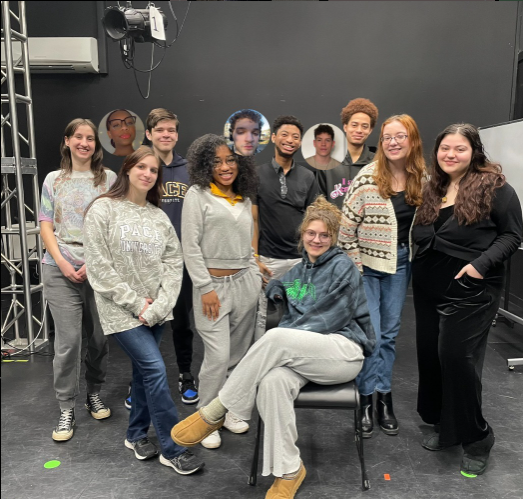Uncertainty in College and After Graduation
May 2, 2014
Switching majors is a commonplace occurrence; in fact, it is likely that a student will switch their major more than once while in college.
It’s been said before and I’ll say it again here- it is ok to be unsure of what you want to study or of what career you want to have before you complete four years of undergraduate education.
It is my opinion that we as students are lead to believe that we must pick a major that is tailored to some career that is of interest to us; we must pick a major that will allow us to make some money while still enjoying what we do, and we then must graduate and immediately receive a job in our field of study. Or, we must go to grad school.
This life path is what high school students and college students, I think, are lead to believe is the only way to success.
Not true.
This semester, I had the opportunity to talk with and interview several professors, Pace faculty, Pace alumni, and other adults with steady and successful careers.
What I found was that quite a few of these successful individuals were not sure where they would end up when they were studying to receive a BA or BS. Many continued to be unsure of their career paths after they graduated. Their professional lives essentially fell into place with hard work and with an acceptance and appreciation for opportunities afforded to them.
Speaking with these people eased my fears of the future. After switching back and forth between a history major and a communications arts and journalism major, I finally settled on double majoring in history and communications and media arts. I am currently planning on going to law school. I don’t know what type of law I want to go into, and I am not 100 percent certain that I will be happy on the career path I choose.
I even took an exam to become a police officer as a, as my father put it, “back up plan for a job” should law school not work out or should I need a source of income to pay for law school.
My own father is included in the list of successful adults I spoke to; unsure about his career path and wanting to provide for a family, he decided to become a cop when he was nearly 40, proving that it is never too late to change the course of your life and career.
I am technically in my first semester of junior year, and I felt that, as a junior, I should be more certain about my five-year plan and even about my ten-year plan.
But this semester I realized that I don’t have to be so certain about where life will take me. There was a common message from most of the adults I spoke to. They all remained open to opportunities that were presented to them after graduating, and they used the skills they had to open doors for them in other areas and advance themselves throughout the professional world. Some work directly in the same field that their major was in, and others do not; some use skills they received from internships and some decided to go to grad school to either continue studying what they majored in or to study something new.
One got a job within a university and was able thus able to take classes to receive a master’s degree within that university. It’s all about being open to the chances that are given and earned.
Undergraduate majors are important, but what is more important is seeking opportunities to advance yourself, to enhance skills you already have, and to gain new skills that might be beneficial in the future.
Networking can’t hurt either.
If you haven’t changed your major since freshman year and have an almost-definite five-year plan and a way to achieve it, I am jealous. If you don’t, just keep working to make yourself known and explore different fields that interest you, all the while keeping yourself open to new challenges.











